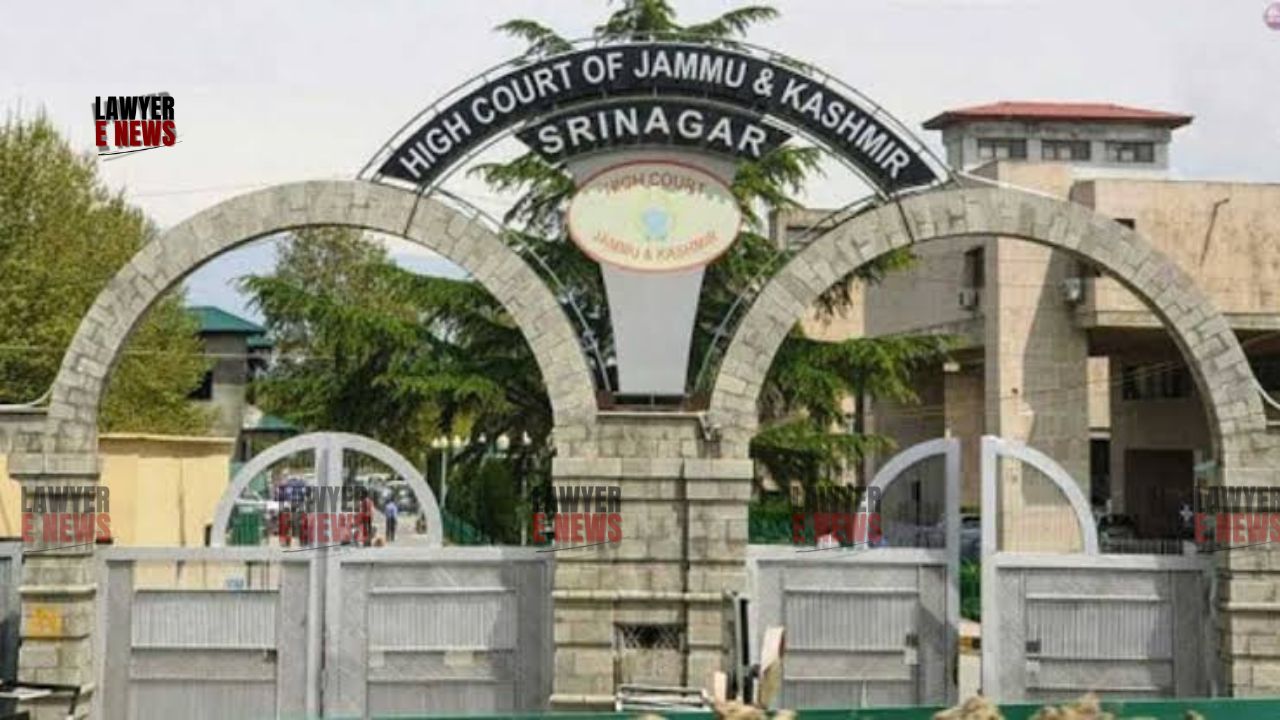-
by Admin
15 February 2026 5:35 AM



Jammu & Kashmir High Court dismissed the petitions in Ghulam Rasool Chaku & Ors. vs. Ishwar Ashram Trust, affirming an interim order allowing devotees to offer prayers at a temple on disputed land. The court ruled that maintaining status quo was necessary to protect the rights of devotees until the final resolution of the ongoing property dispute.
The property in question, measuring approximately 8 kanals, located at Gupt Ganga Nishat Srinagar, was the subject of multiple suits between the petitioners, Ghulam Rasool Chaku & Ors., and the respondent, Ishwar Ashram Trust. The petitioners claimed ownership, while the respondent trust argued that the land was donated to it by Smt. Kamla Devi, who had constructed a temple on the land.
The trial court, in 1997, had declared the petitioners as owners, but the respondent trust challenged this through multiple suits. After a prolonged legal battle, in 2013, the High Court had ordered the consolidation of suits and directed both parties to maintain status quo, allowing devotees to continue offering prayers at the temple.
The petitioners challenged the ex parte order passed by the trial court on December 30, 2013, which extended the status quo order, arguing that it was passed without hearing their side and that there was no temple on the property at the time of acquisition.
The key issue was whether the trial court’s ex parte order extending the status quo was valid, especially since the applications for similar relief were still pending before the court. The petitioners argued that the interim order was passed without due consideration and should not have been extended without hearing them.
The respondent trust, on the other hand, argued that the temple on the disputed land had historical significance and that the rights of devotees to offer prayers should be protected until the matter was fully adjudicated.
The Jammu & Kashmir High Court, presided by Justice Sanjay Dhar, dismissed the petitioners’ challenge. The court found that the trial court’s order extending the interim arrangement was neither illegal nor perverse. The High Court emphasized that the trial court’s discretion in protecting the subject matter of the dispute, including the rights of devotees, was justified, especially in the absence of a decision on the pending interim applications.
The court noted that while there were conflicting claims regarding the construction of the temple, the existence of the temple on the disputed land was not in question. Thus, the status quo needed to be maintained to prevent any disruption to religious practices.
The High Court upheld the status quo order, allowing devotees to continue offering prayers at the temple and directed the trial court to expedite the hearing on the interim injunction applications. The court also dismissed the contempt petition related to the case.
Date of Decision: September 26, 2024
Ghulam Rasool Chaku & Ors. vs. Ishwar Ashram Trust.
